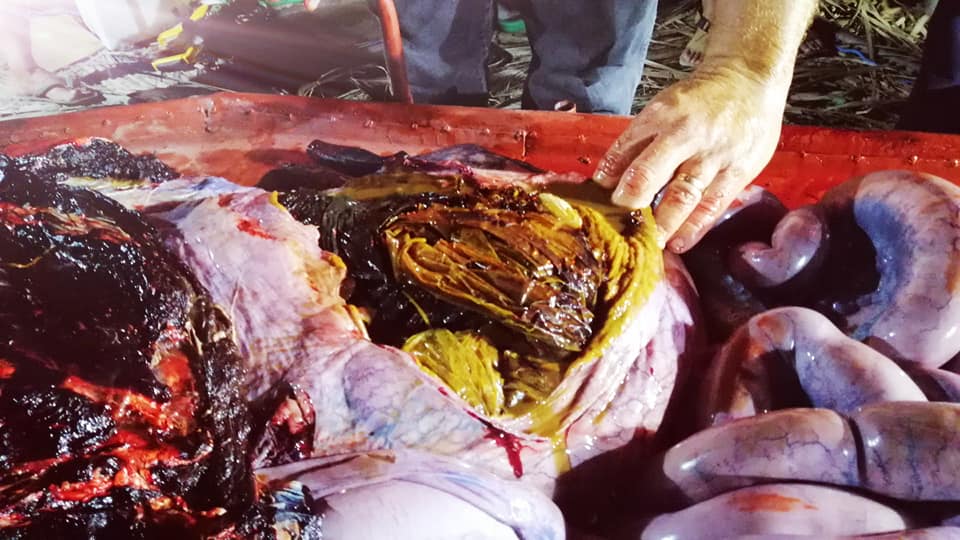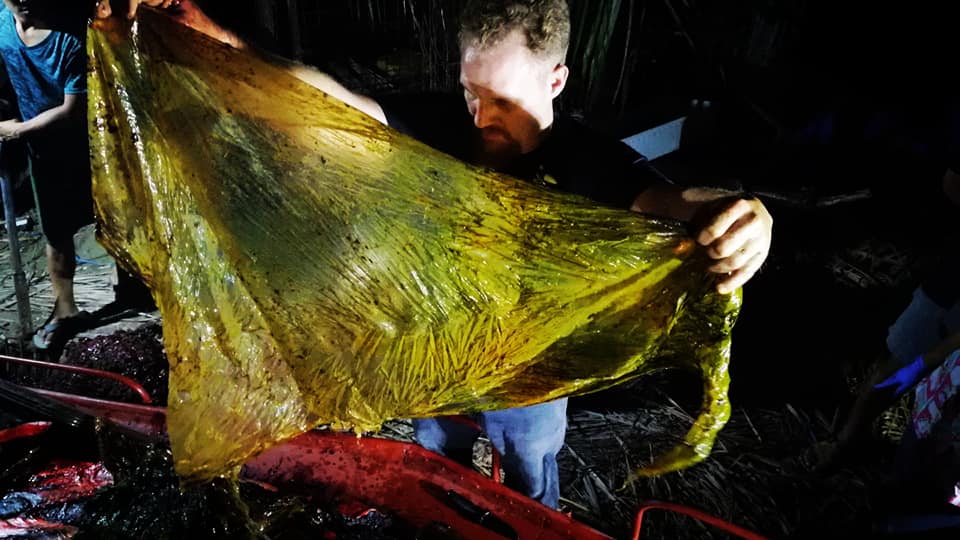A Dead Whale with 88 Pounds of Trash in Its Stomach Washed up in the Philippines
A dead whale has washed up in the Philippines with 88 pounds of garbage in its stomach, perhaps the most human waste ever found inside of a whale.
The young male Cuvier's beaked whale was discovered on Saturday with "16 rice sacks, 4 banana plantation style bags and multiple shopping bags," Darrell Blatchley, owner of the D'Bone Collector Museum in the Philippines, wrote on Facebook.
Blatchley told the New York Times that he witnessed a necropsy of the whale, and called it one of the worst cases of a whale having ingested plastic that he has seen.
"The plastic in some areas was so compact it was almost becoming calcified, almost like a solid brick," Blatchley said. "It had been there for so long it had started to compact."
The Philippines ranks as one of the world's largest producers of plastic marine waste, generating 2.7 million tons of it annually according to a 2015 study by the Ocean Conservancy. The archipelago, which is home to more than 100 million people, churns out an average of 4,609 tons of plastic waste daily-notably single-use sachets for food or other products-according to another 2015 study published in Science.
 The whale's stomach contents are examined during a necropsy. Image: Facebook/D'Bone Collector Museum
The whale's stomach contents are examined during a necropsy. Image: Facebook/D'Bone Collector Museum  Plastic removed from the animals stomach. Image: Facebook/D'Bone Collector Museum
Plastic removed from the animals stomach. Image: Facebook/D'Bone Collector MuseumMarine plastic is a leading problem of the Anthropocene, with fishing equipment as the largest source. According to a 2015 study published in Environmental Research Letters, and as noted by Vox, only one percent of ocean plastic lingers at the surface-the rest accumulates on the seafloor. Recently, a plastic bag was spotted at the bottom of the world's deepest ocean trench.
In the Philippines, there are local efforts to reduce and bring awareness to this blight. One group of people, including former fishermen, are diving for wayward nets, hauling them ashore, and repurposing them into nylon yarn.
Plastic's impact on marine wildlife is still being studied, but scientists know that many animals are eating these objects thinking they're food.
In February, a dead sperm whale was found in Spain with 64 pounds of trash in its gut. Two other whales that recently died on beaches in Thailand had more than a dozens pounds each in their stomachs.